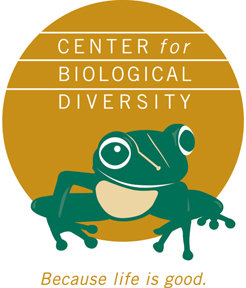San Bernardino National Forest, Strawberry Creek, Wildlife at Risk
July 2, 2018 - SAN BERNARDINO, Calif.— The U.S. Forest Service last week issued a new permit to Nestlé Corp., allowing the massive water-bottling company to keep siphoning water from San Bernardino National Forest despite evidence that its  operations are draining a spring-fed creek.
operations are draining a spring-fed creek.
The Forest Service failed to conduct a required environmental review before issuing the permit, which allows Nestlé to continue pumping millions of gallons a year from Strawberry Creek despite evidence that it may far exceed the company’s water rights.
The new permit contains limited mitigation measures for the creek, such as requiring minimum flows in two areas. While the permit requires the company to monitor impacts more broadly, the triggers and actions are not defined and fail to ensure needed protections will be provided.
“This new permit will allow Nestlé to continue draining this fragile watershed without adequate environmental protections,” said Lisa Belenky, a senior attorney at the Center for Biological Diversity. “The Forest Service downplayed information about the damage Nestlé’s bottled-water operation is already doing and failed to do a robust environmental analysis, as the law requires. The limited mitigation measures don’t appear adequate to prevent Nestlé from destroying plants and wildlife that have relied on Strawberry Creek for thousands of years.”
The Forest Service acknowledged that it can limit how much water Nestlé can extract from the creek. But the two small minimum-flow requirements do not provide adequate water that wildlife and plants need to survive.
The Forest Service decision also admitted that the State Water Resources Control Board evaluation of Nestlé’s water rights on Strawberry Creek is ongoing and that the initial report found that Nestle’s water rights are far less than the corporation claims.
“The Forest Service can’t legally issue a new permit without first confirming the water rights,” said Belenky. “It can’t gloss over its failure to comply with this critical requirement by relying on future studies. The harm to the ecosystem is occurring now, in real time, and must be stopped.”
In 2015, the Center for Biological Diversity, Courage Campaign Institute and the Story of Stuff Project filed a lawsuitchallenging the Forest Service’s reliance on Nestlé’s long-expired “zombie” permit. The new permit replaces that long-expired permit.
Under the old permit, Nestlé siphoned off up to 162 million gallons of water a year from Strawberry Creek for its Arrowhead brand. Nestlé, the world’s largest water-bottling company, earned $8.3 billion in profits from its water business in 2016. U.S. Geological Survey reports from July 2017 show that, despite heavy winter precipitation across California, Strawberry Creek’s streamflow levels were the lowest since the agency began keeping track 96 years ago.
The Center for Biological Diversity is a national, nonprofit conservation organization with more than 1.6 million members and online activists dedicated to the protection of endangered species and wild places.
Source: Center for Biological Diversity








